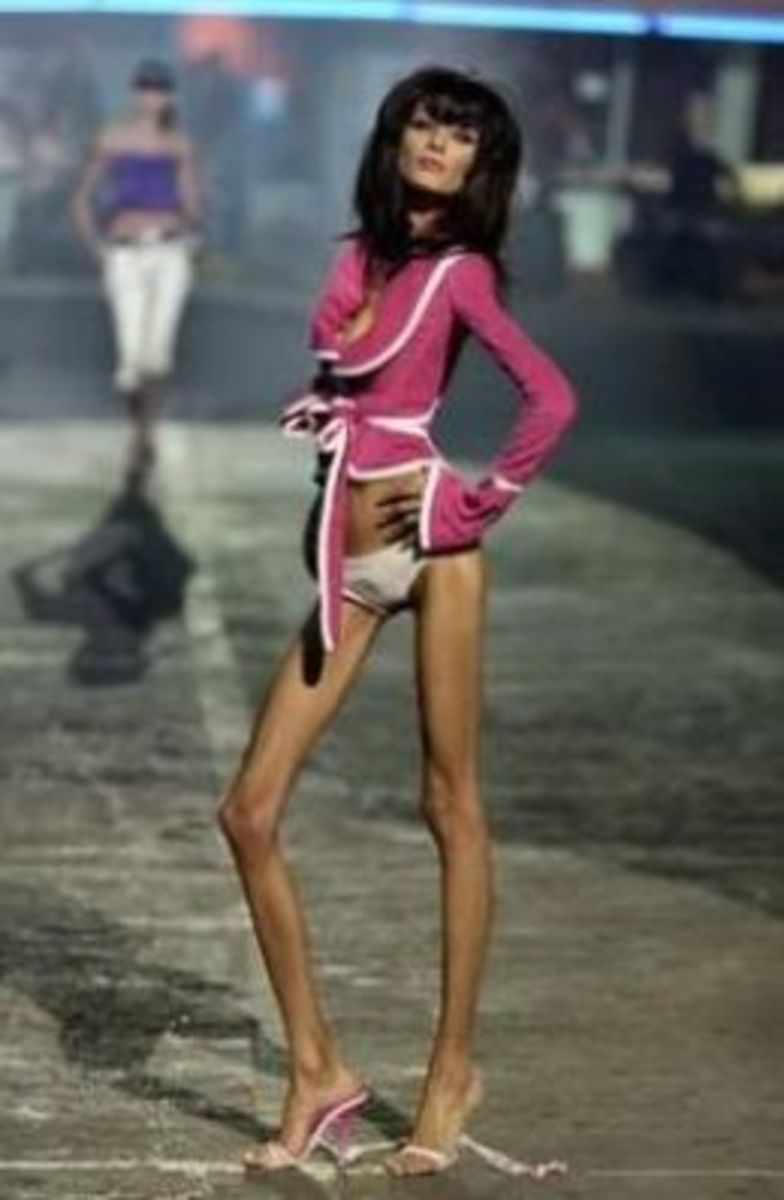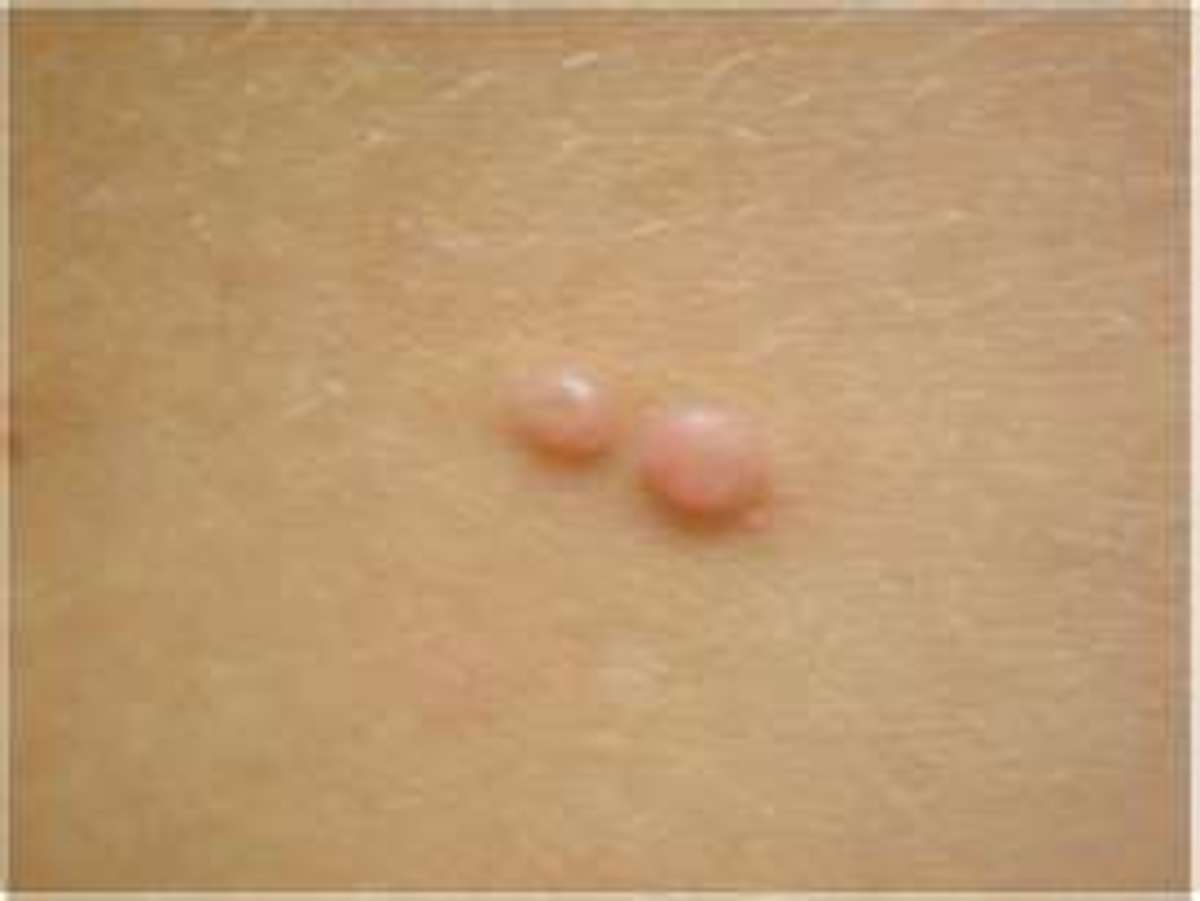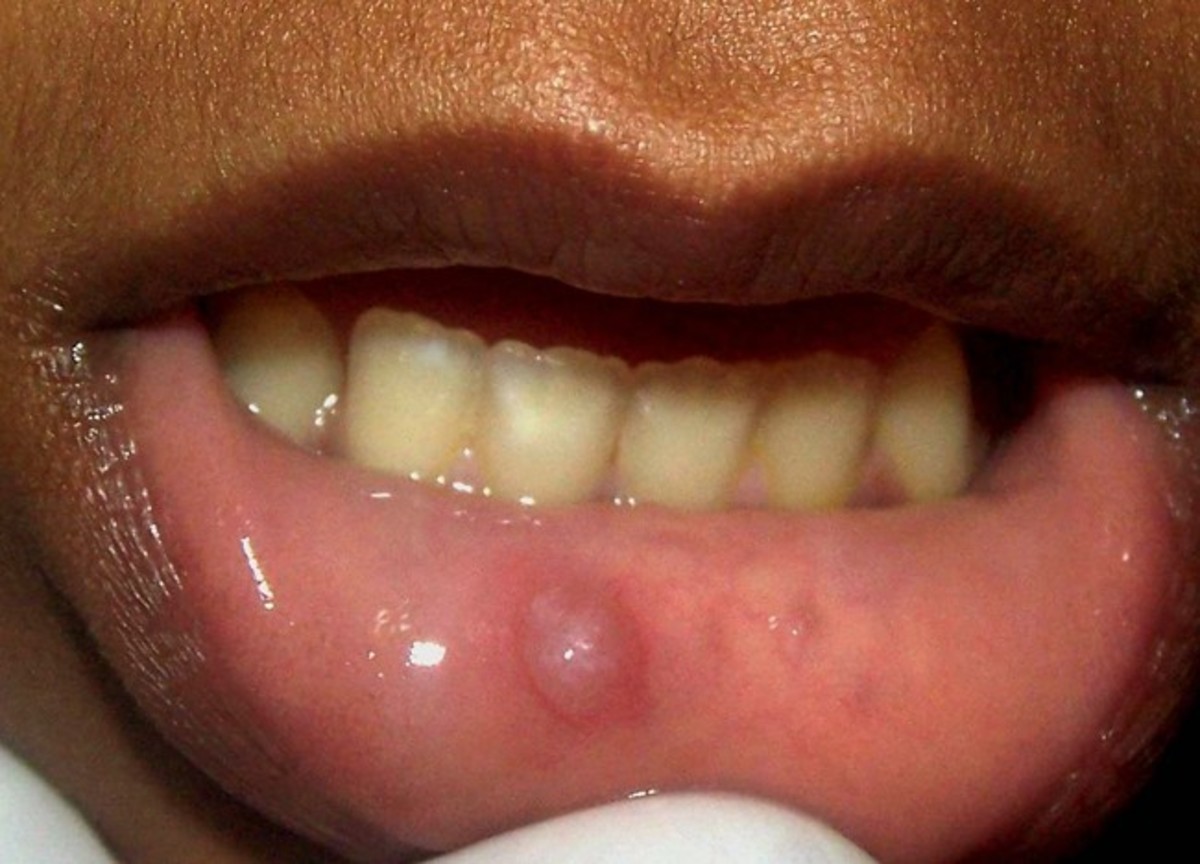Anorexia and the Internet: Controversy of Harm or Benefit

Anorexia Nervosa is a deadly disorder that plagues much of today’s youth. With fear of weight gain and going to the extremes to lose all possible body fat, those suffering from anorexia at all ages and stages of life face many risks. Why, however, do these people turn to such desperate attempts to become thin? One of the largest contributing factors of this psychological disorder is believed to be the media (Ferguson, 11). Through all different sorts of outlets, people see thin TV and movie stars, size 0 models, and many other things that make them want to lose weight (Graves, 29). Today’s society has allowed its men and women to believe that in order to be beautiful they must meet these kinds of standards. Without the aid of the media, this disease would be far less widespread and possibly even easier to control.
The so-called “worst” form of media influence on those suffering from this disease is the internet. Go on to any search engine and look-up “Pro-Ana”; the results may at first be shocking. Anything from actual pro-anorexia sites to the articles bashing them will flash onto the screen. Don’t turn away all too quickly though, because there may be even more to each site once the veil has been pulled back. Though many of the naysayers of such online sources would want others to believe that all of these websites are harmful and trying to force others to give anorexia a try, a good portion of these sites just aren’t so. “It is a place for people to express themselves among others who understand their struggle or have similar questions,” James Watson states, of PrettyThin.com. With this, he is trying to explain to people that these sites, in particular his own Pretty Thin website, are trying to provide people with a healthy environment to talk to others just like them. They want to be able to provide people with others who know what they are going through. Once a deeper look is taken, people may actually like what they find.
What is a pro-anorexia site exactly? Well it is basically what it sounds like, a site that promotes anorexia. Only, that is just what they appear to be on the surface. Many of these sites are unfortunately coined as pro-ana (ana being short for anorexia), but they do not promote this disorder. What they do promote are the people suffering from such a disorder and typically people suffering from any other eating disorders as well. This kind of a site is called a pro-anorectic website. They allow for people to get into contact with others who are going through the same thing or who are recovering, and they also let you openly vent about what is bothering you without having to worry about offending anyone you care about. Some of these sites are not member-based however, and simply offer information on anorexia while still supporting those who suffer and not the disease itself.
When asked why people get on a particularly popular pro-ana website, they said the following: “Because for the first time in my life, I have a family who I can talk to about this stuff”, “I feel more in control of what I'm dealing with and less alone about it,” (Watson). These people sometimes depend on this particular website to make it through the day. The people on there are so supportive and caring of them that they even feel like family. Without such a place, many of these people would feel even more alone and desperate to lose weight. So are these sites beneficial or are they harmful to all?
As many have exemplified before us, there are plenty of reasons to dislike pro-anorexia websites. They contain content that you may find offensive or damaging to a patients recovery from anorexia. One of these things, Thinspiration, is a collection of pictures that inspires a person to lose weight (Harshbarger et al, 369-370). These typically contain pictures of women and sometimes men who are extremely thin. Sometimes you will find subcategories of these pictures that are put into groups according to body parts, or the style of clothing or stereotypical group that the person is wearing or falls under (Harshbarger et al, 369-370). Along with these images, many of these sites also include a “Tips & Tricks” page (Boydell, 444). These generally include anywhere from a few to hundreds of tips on how to lose weight and to keep parents, friends and doctors from noticing (Harshbarger et al, 369-370). Many parents and doctors believe that these are enough to successfully accuse these sites of endangering others (King, 471).
In one study done on seventh, ninth and eleventh graders, they found that the students were more driven for thinness and perfection after viewing the sites. In this study, the following statistics were recorded: 25% of people found these websites to be bad and 44% of people found them to be either bad or somewhat bad, and participants who found the websites to be just bad were 2.9 times more likely to visit the websites than someone who found it very bad. Girls were also found to be 3.1 times more likely to visit the websites than boys. However, in the same study, it was also recorded that 32% of participants found the websites to be good, somewhat good, or very good. Those who found the websites positive were 5.3 times more likely to visit the sites again than those who found it bad. This just goes to show that people really need to take a deeper look into these sites. Once they do, they are more likely to see the benefits of these sites and be able to put the negative in the back of their minds in order to view the positive for what it really is.
Though there are many small sites that are providing viewers with such sources, and even though all these sites have or discuss the use of thinspiration, it doesn’t make them all bad. Take for example Pretty Thin and Disordered Nation, both of which are examples of the top visited pro-ana sites. Pretty Thin does provide thinspiration, however it does not provide or allow tips & tricks. In fact, Pretty Thin will delete members who ask for such things or give them out. Disordered Nation doesn’t provide either thinspiration or tips & tricks. Instead it gives you myths and facts about the disorder and lifestyle – also provided on Pretty Thin – and discusses how many images in the media and especially on the internet have been airbrushed and edited with examples provided. These two sites are great examples of pro-anorectic sites, which are like pro-anorexia sites, except they are there to support the person suffering from the disorder and not the disorder itself. As Disordered-Nation puts it, “this website displays a part of the community we live in, where diverse personalities and opinions exist. With free speech comes the maturity to accept different views from your own and allow those views to be expressed openly,” (Terri).
What is the big deal though, many would want to know? Well, those opposing these sites’ existence want them removed from the internet all together. Why are there people fighting to keep them alive and well? The answer is that because quite frankly, many people need these sites. It’s a fight for survival with anorexia, and when you have others to listen to you and to help you through the disease, and when you can also do the same for those other people, you are able to find a reason to recover. You find support and love from people you’ve never even met before. Sometimes that is the most influential kind of support. In fact, the most important thing these sites offer are the support of their members. Many people can agree that in order to recover, they need feel supported by people, however it is hard to feel fully understood by those who have not suffered from anorexia. Sites like these allow people who are, or are not, on the path to recovery to get into contact with others who are still suffering or have suffered in the past from this disorder. It helps people to feel better understood, and these others can help support them in a way that many family members and friends cannot.
Anorexia is not just a disorder, but a lifestyle that many unfortunately live by. With this in mind, we have to consider the overall benefits and risks of such sites. The risks are that those who are out to help others successfully lose more weight and keep it hidden are going to lure those without the disorder to turn to it instead of dieting in a healthy manner. There are also the dreaded thinspiration and tips and tricks that may be harmful to those who are recovering from anorexia. These sites do pose a potential threat to all in general; however, the benefits far outweigh the risks through providing a loving and caring support system for those who need it.
So should we ban these sites? I say no; no for all of those who have suffered from this disorder, no for all of those who have recovered, and no for all who still suffering from this disorder today. I believe that we need to utilize a select few of these sites in treatment centers, and in outpatient recovery. Some of these sites that do not offer harmful material could be used to their full advantage to provide a support system for those in treatment that will only help further their recovery efforts. The help these sites can provide is an endless amount of love and care from others, mixed in with a hefty portion of understanding.
Pro-Anorexia sites can be harmful through thinspiration and tips & tricks pages. Though this is true, we need to take a better look at these sites and understand all that they have to offer. We also need to figure out which of these sites are pro-anorexia and which are pro-anorectic. Not only should we support the existence pro-anorectic sites, but we should also use them to our advantage to help recovery efforts in treatment centers and support groups and therapy sessions. We should open our minds and hearts to the plight of these sites and give them the credit that they deserve for all that they offer to those suffering from anorexia. While some may be harmful, they can never outweigh the benefits provided by those sites that actually care about their members.
This article is the work of myself, Alyssa Barron, and was completed previously as a class assignment. I am publishing it here because I feel that it makes a good and informative article and has information that others should be interested in and able to learn from.
Works Cited
Boydell, Katherine M., et al. “Ana and the Internet: A Review of Pro-Anorexia Websites.” International Journal of Eating Disorders 39.6 (2006): 443-447. Academic Search Premier. Web.
Custers, Kathleen, and Jan Van den Bulck. "Viewership Of Pro-Anorexia Websites In Seventh, Ninth And Eleventh Graders." European Eating Disorders Review 17.3 (2009): 214-219. Academic Search Premier. Web.
Ferguson, Christopher J., Benjamin Winegard, and Bo M. Winegard. “Who is the Fairest One of All? How Evolution Guides Peer and Media Influences on Female Body Dissatisfaction.” Review of General Psychology 15.1 (2011): 11-28. PsycARTICLES. Web.
Graves, Bonnie. “Chapter Four: What Causes Anorexia?.” Anorexia. 29. Capstone Press, 2000. Health Source – Consumer Edition. Web.
Harshbarger, Jenni L., et al. “Pro-Anorexia Websites : What a Clinician Should Know.” International Journal of Eating Disorders 42.4 (2009): 367-370. Academic Search Premier. Web.
King, Laura A. Experience Psychology. New York, New York: The McGraw-Hills Companies, 2010. Print.
Terri. Disordered Nation. WordPress, 2011. Web.
Watson, James. Pretty Thin – World’s Largest Eating Disorder Community. Webs, 2007. Web.








